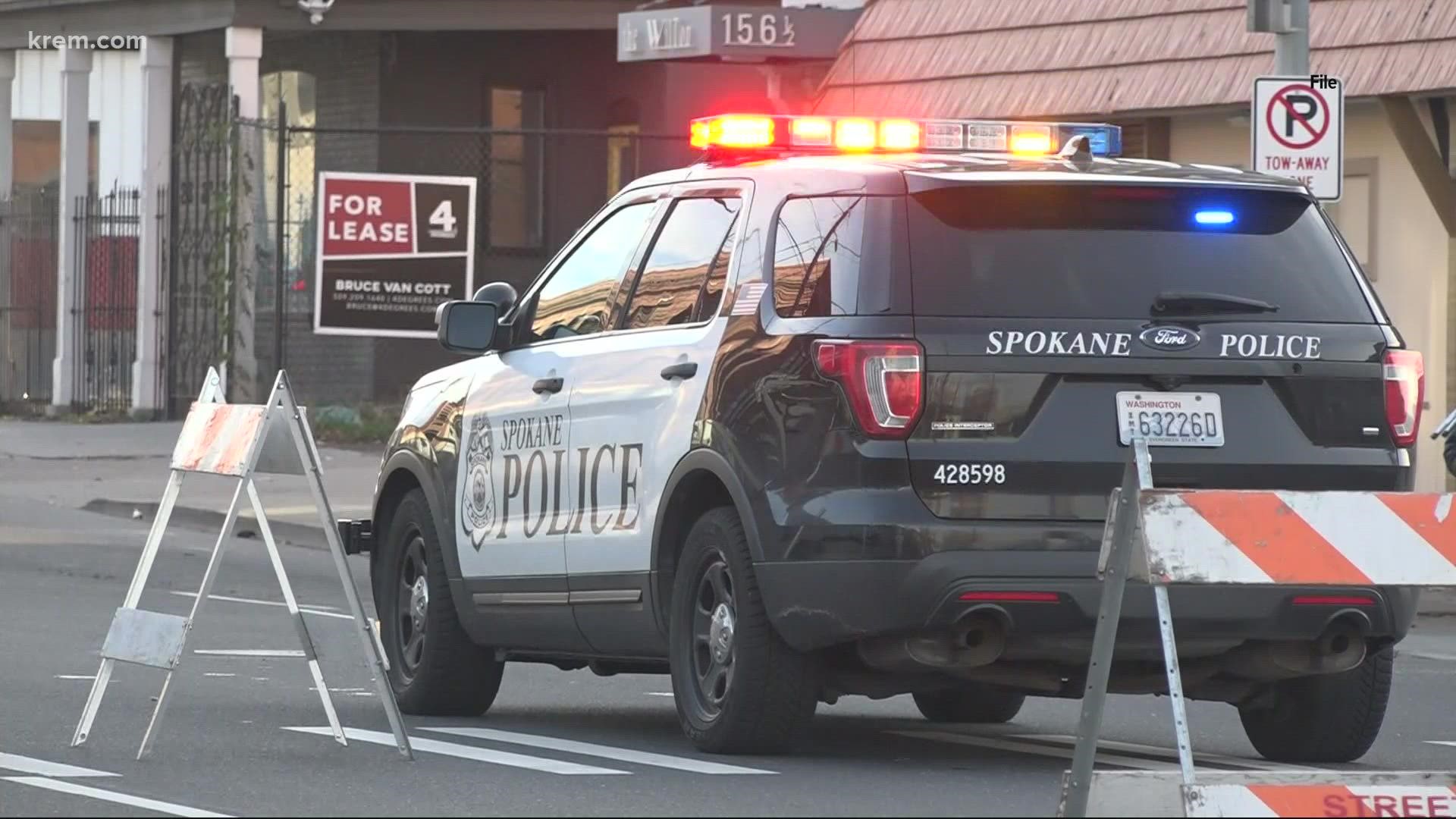SPOKANE, Wash. — Spokane Police Chief Craig Meidl suspended the department’s anti-crime team and reassigned its officers after a federal judge dismissed a drug trafficking case over inaccurate statements made by arresting officers.
The Spokane Police Patrol Anti-Crime Team (PACT) was created in 2011 to “address emerging crime trends and prolific offenders.” Now, all 10 officers on the team have been reassigned to patrol duty due in part to the actions of two officers.
Senior U.S. District Court Judge Rosanna Peterson dismissed the case against Jody Wallette, who was accused of drug trafficking, on Dec. 16 after granting a motion to suppress evidence, according to federal court documents. Wallette was arrested on March 3, 2021 and accused of distributing fentanyl and “Mexi-blues.”
Court documents say Peterson decided to suppress evidence collected by Spokane Police Officers Scott Lesser and Winston Brooks after the defense argued that the affidavits for multiple search warrants in the case “contained false or misleading statements.”
Spokane Police provided the following statement following the judge’s decision:
"SPD is aware of the concerns expressed by a federal judge regarding an investigation by members of PACT. We take these concerns very seriously and have launched an internal investigation. This court ruling serves to allow us to pause and take a deeper look at what we want our pro-active policing to look like. The nature of police work has and is continually changing and this step of reassigning PACT members gives SPD the opportunity to assess the role of the police anti-crime team."
According to court documents, Lesser used a confidential informant, who was previously arrested for possessing heroin and meth, to buy fentanyl at a home in northeast Spokane in late February 2021. Lesser had the informant do multiple controlled drug buys that eventually helped his efforts in getting search warrants for Wallette, documents say.
Documents say Lesser gave the informant a number he believed belonged to Wallette to set up a buy, but Lesser later said he didn't confirm the subscriber information for the phone number.
Officer Brooks testified that he identified Wallette at the scene of the drug buy, even though handwritten notes from the officers didn’t confirm Wallette was at the scene and it was dark outside.
Documents also say receipts and cellphone data show Wallette in Bellevue at the time of the buy.
Wallette was arrested 10 days after the drug deal, documents say. Judge Peterson ruled that the arrest was made without probable cause. The judge decided to suppress Lesser and Brooks’ evidence on Dec. 6 and threw out Wallette’s case 10 days later.
Spokane police spokesperson Julie Humphreys said the department launched an Internal Affairs investigation into the arrest following the judge’s ruling.
Lesser was also investigated by the department for a controversial arrest in February 2019. He was named in a lawsuit filed by Lucas Ellerman, who was subject of the arrest, that claims he and fellow officer Daniel Lesser entrapped Ellerman’s car against a snow bank after a vehicle pursuit. All three officers involved in his arrest were not in violation of the departments use-of-force policy.
This isn’t the first time the PACT has been accused of discrepancies between handwritten notes and official records.
Court documents show former Spokane Police Detective Lonnie Tofsrud filed a lawsuit in October 2019 that claims he pointed out discrepancies between an official report and the notes from PACT members Corporal Jeffrey McCollough and Sgt. Kurt Vigessa for the arrest of a confidential informant in 2017.According to the lawsuit, Tofsrud called McCollough and asked him to address the inconsistencies because it could cause problems for the prosecutor’s office due to Brady list implications. A Brady list is a prosecutor’s roster of officers whose conduct means their credibility could be challenged as witnesses in criminal cases.
Tofsrud told McCollough he would be reaching out to the prosecutor’s office the next day for guidance, which ultimately led to the case against the informant being dismissed, court documents said.
Tofsrud was later reprimanded in June 2018 for going outside the chain of command for not going to internal affairs first. Then, court documents allege an Internal Affairs investigation into Tofsrud determined he knowingly made false statements to harm another department member’s reputation. Tofsrud was then placed on the Brady list, making him unable to testify in court and was placed on desk duty.
In 2019, Tofsrud filed a lawsuit for damages in federal court over claims of retaliation. A judge later dismissed the case.

